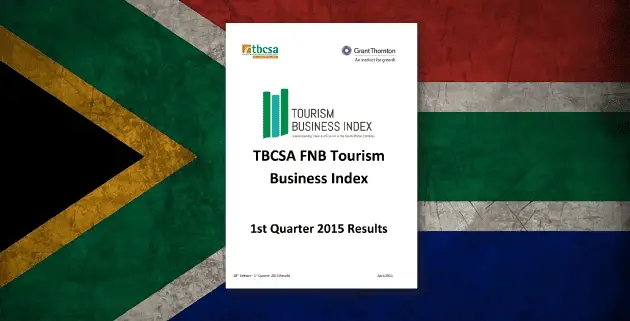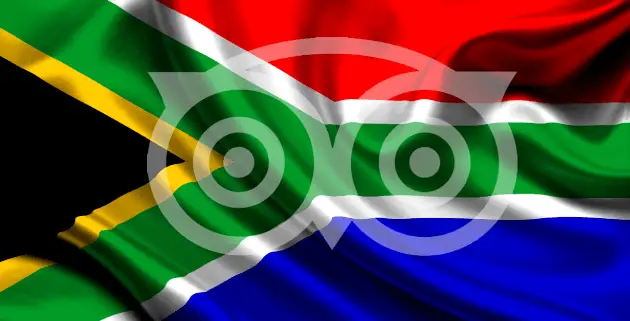The two faces of SA’s economy

The private sector, by contrast, has improved its competitiveness. It is vibrant, innovative and increasingly competitive, and can stand up to comparison with any country in the world.
The World Economic Forum – the Swiss non-profit foundation funded by the world’s largest 1000 multinational business enterprises – produces the annual Global Competitiveness Report. A country’s ranking is based on 111 dimensions ranging from property rights to innovation and tax rates. South Africa ranks 52nd out of 144 countries.
It is possible to split these dimensions between the private sector (such as the quality of professional management and the availability of financial services) and the public sector (such as the quality of public infrastructure and the reliability of police services). The private sector in South Africa is ranked 34th in the world (alongside Chile) whereas the public sector is ranked 80th in the world (alongside Guatemala).
SA’s private sector is in its best shape ever.
The proportion of national income attributable to private business enterprises (including the largest category, sole proprietors) has increased from 39 percent in 2000 to 51 percent in 2012.
The real, risk-adjusted return on capital of South African listed businesses is currently 10 percent – the highest in the world and twice as high as the five percent achieved in apartheid-era South Africa.
In some notable areas – including accounting standards, corporate board effectiveness, securities exchanges, financial rights, soundness of banks and access to credit – South Africa ranks the very highest (#1) in the world.
For black South Africans employed in the private sector, incomes are rising by 11 percent per annum, nearly treble the four percent increase for whites, and racial disparities between wage-earners are likely to disappear within a decade.
Excellent tertiary education options in the private sector, particularly in Gauteng, have created a class of black commerce and finance graduates who, within a few short years, will transform the management of South African enterprises. As the latest census shows, a substantial number of young Africans are no longer becoming teachers and nurses, but rather accountants and business managers.
In response to high income tax rates, and restrictive labour laws, many South African small businesses are re-forming themselves in the informal sector, where they don’t comply with labour laws or pay income taxes.
According to Adcorp’s calculations, South Africa’s true unemployment rate is around nine percent, not 25 percent as Statistics SA would have us believe, because an estimated 4.2-million more people are involved in the informal sector than the official figures suggest.
SA’s public sector, by contrast, is in an advanced state of collapse.
Private alternatives are springing up all over the place in response to government incompetence.
There are more private security guards (421 000) than police officers (151 000). Government school enrolments fell five percent in 2012, whereas low-fee private school enrolments grew 23 percent.
Judges complain that the most interesting commercial cases now go to private arbitration, side-stepping the courts altogether. Private hospitals, possessing only 12 percent of the country’s bed-nights, treat 35 percent of all “belly buttons” each year.
Eschewing the country’s highly restrictive labour laws and regulations, businesses now employ 36 percent fewer workers to perform a given unit of work than they did in 1990.
South Africa’s public sector ranks notably poorly in such areas as labour hostility (144th out of 144 countries); crime and violence (134th); primary education (132nd); regulatory burden (123rd); organized crime (111th); nepotism by government officials (110th); electricity supply (94th); and reliability of police (90th).
Even that paragon of administrative efficiency, the South African Revenue Service (SARS), was so aggressive in collecting income taxes between 2006 and 2011 that it drove 440 000 small businesses into the informal sector.
At present, 1.7 percent of taxpayers account for 24.3 percent of tax revenues – and 4.5 percent of taxpayers account for nearly 40 percent of tax revenues. The “one percent” in South Africa shoulders the highest incidence of income tax in the world.
Just one evil: Unemployment
Perhaps the greatest government failure has been in the area of unemployment.
Government officials have recently started pointing to the “triple evils” of poverty, inequality and unemployment. In reality, there is just one evil: poverty and inequality reduced, essentially, to the problem of unemployment; poor people do not have jobs, and inequality between those who have formal sector jobs is comparatively small.
For example, South Africa’s Gini coefficient is 0.63 (i.e. very high inequality) when measured using income. When measured using consumption, the Gini coefficient is smaller, because government reduces inequality by taxing middle- and high-income individuals and making transfers to the poor, including the provision of free or low-cost public services.
South Africa’s Gini coefficient is 0.58 when adjustments are made for social grant income (i.e. old age pensions, disability grants, family and other allowances, workmen’s compensation claims, alimony and other income from individuals).
South Africa’s Gini falls further, to 0.54, when adjustments are made for free water, sanitation, electricity and other free public services.
Finally, the Gini falls to 0.52 when adjustments are made for direct personal income tax. While this Gini coefficient is still relatively high and difficult to compare to other countries, it clearly indicates that true inequality in South Africa is much lower than is generally reported, for the reason that the impact of government social policies on inequality is substantial.
Private/Public co-existence?
It is highly unlikely that these two sets of circumstances – a prospering private sector and a predatory public sector – can co-exist for long. What we are no doubt observing is the “hollowing-out” of the state, where only empty symbols of public service remain – generously paid civil servants who lack accountability and are concerned more with trade union appeasement than service delivery.
Public services such as education, health, security and infrastructure will have to be provided by the private sector, and the remaining public services – border controls, vehicle licensing, tax collection and the like – will remain what they are now fast becoming, namely opportunities for petty bribes.
South Africans are responding to these forces in rational ways. For example, growing numbers of people have started under-reporting their incomes to the authorities for the purpose of income tax evasion. As a whole, 4.5-million people report to Statistics SA enumerators that they earn income in the taxable range, whereas 6.2-million are actually paying income tax to SARS – an undercount by Statistics SA of 27 percent. Or, stated differently, the average taxpayer income is R266 641 per annum according to SARS and R193 325 per annum according to Stats SA – an undercount of 28 percent.
Ever entrepreneurial, South Africans are finding interesting ways to “jive” the tax system. According to our calculations, the authorities are only collecting two-thirds of the income taxes owing to them. Households have succeeded in hiding from the tax authorities around one-half of their incomes, a figure that hasn’t changed appreciably over the past 50 years.
Conclusion
There is a great deal of good news about the country, very nearly all of it from the private sector. A sure-fire recipe for low-stress living is to cancel the newspaper, switch off the SABC, and spend more time trying to understand, and debate, the truth of this beloved country of ours.
Loane Sharp is the Labour Economist at Adcorp. www.adcorp.co.za





